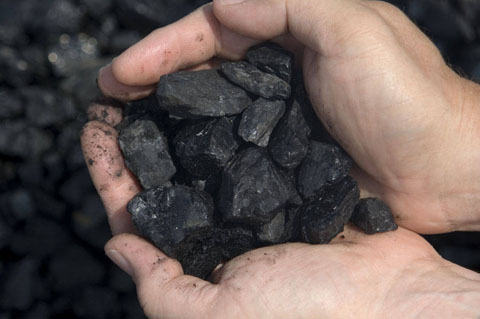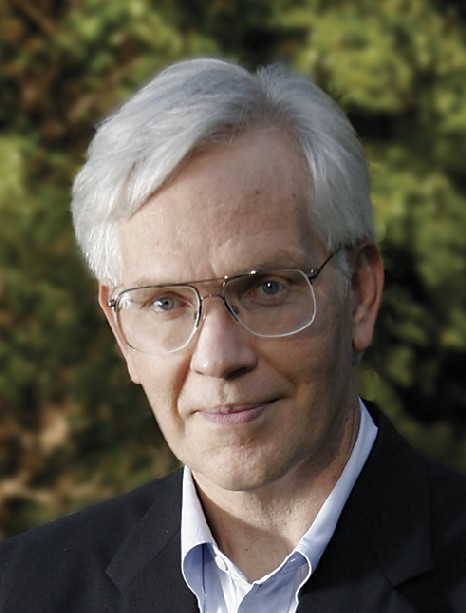Key words :
future energies,
peak
,climate change
,cap and trade
,rutledge
,patzek
,oïl
,séquestration
,coal
,croft
,electricity
Global Coal Supplies: It Might Be Worse Than Anyone Thinks
10 Aug, 2010 04:11 pm
A new study on global coal supplies suggests a worldwide peak in production from existing fields in 2011.
 Claims that the world has 200 to 400 years of coal left at current rates of consumption have blinded policymakers and the public. The claims are based on two questionable notions: 1) That official coal reserve estimates are accurate and 2) that the world will experience no growth in the rate of consumption of coal over the period cited.
Claims that the world has 200 to 400 years of coal left at current rates of consumption have blinded policymakers and the public. The claims are based on two questionable notions: 1) That official coal reserve estimates are accurate and 2) that the world will experience no growth in the rate of consumption of coal over the period cited.
In a new study published in the international journal Energy researchers Tadeusz W. Patzek and Gregory D. Croft suggest that actual historical coal production is a better indicator of the future trend of worldwide coal output than stated reserves which are notoriously unreliable. They note, for example, that the state of Illinois, despite its rank as second in reserves in the United States, has seen its production decline by half over the last 20 years. In the meantime Illinois' estimated recoverable reserves have actually increased from 32 billion tons to 34 billion tons between 1987 and 2006.
They mention the work of David Rutledge at the California Institute of Technology who has detailed the sharp downward revisions in the official reserve estimates in recent decades and who believes ultimate production will fall far short of the current reserve estimates. The trajectory for reserves, Rutledge shows, has largely been down as planners include constraints both technical and practical such as coal in seams too thin to mine economically or the presence of a large city over a shallow coalfield. Rutledge also applies Hubbert Linearization to the production data to obtain a truly startling picture of ultimate future recoveries: 50 percent less than current forecasts.
As for the second assumption, the idea that coal demand would stay the same even as the population and the world economy presumably grow is an absurd notion without any historical basis. So even if stated reserves are correct, exponentially rising rates of production would quickly whittle the supply down to perhaps 75 years with a peak coming much sooner than that.
But the authors believe such a path of growth is out of the question because of the near term production peak they expect in coal and oil as well. They calculate a peak in worldwide coal production from existing coalfields in 2011. They argue that nearly all of the world's major coalfields have been known for a long time, and that only one major field has been discovered in the last 50 years. They recognize major untapped sources in Alaska and Siberia, but believe that the difficulties and long lead times involved in developing them will mean that the date of peak production will not be affected. Rather these areas might lessen somewhat the pace of decline. Perhaps the most shocking projection in the report is that coal production from existing coalfields is expected to fall by 50 percent over the next 40 years.
The authors also conclude that money would be better spent on increasing the efficiency of coal-fired electrical generating plants rather than on carbon capture and sequestration technology. Sequestration technology assumes long-lived coal reserves, the burning of which would contribute greatly to global climate change. But since the authors believe no such long-lived reserves exist, society would be better off managing the decline in available coal through greater efficiency in electrical generation so as to provide adequate power supplies. They suggest that existing coal-fired power stations upgrade to supercritical steam turbines which would lift efficiency from about 35 percent to 50 percent. This greater efficiency would also tend to reduce the rate of emissions of greenhouse gases.
The authors also believe a cap and trade greenhouse gas emissions regime will be ineffectual if the cap is set at the current high level of emissions. Declining availability of both coal and oil will cause emissions to fall without any technological innovation, and thus a high cap would tend to accomplish little or no additional reduction.
If Patzek and Croft are right, it would be a rare bit of good news for those concerned about climate change. But their findings would also be extremely bad news for a global society dependent of coal for 27 percent of its energy needs and which is headed for a peak in oil as well.
Key words :
future energies,
peak
,climate change
,cap and trade
,rutledge
,patzek
,oïl
,séquestration
,coal
,croft
,electricity
-
12/12/12
“Peak Oil” is Nonsense… Because There’s Enough Gas to Last 250 Years.
-
05/09/12
Threat of Population Surge to "10 Billion" Espoused in London Theatre.
-
05/09/12
Current Commentary: Energy from Nuclear Fusion – Realities, Prospects and Fantasies?
-
04/05/12
The Oil Industry's Deceitful Promise of American Energy Independence
-
14/02/12
Shaky Foundations for Offshore Wind Farms







 Read more
Read more
Thanks for your question. If I'm reading you right, I think you believe that it will be no problem to replace the energy coal is providing us with some other form of energy, whether the constraint on coal use is geologic or based on policy. I do not share this assumption. I think we will find all fossil fuel sources constrained in the coming decades and alternatives will not be able to fill the gap.